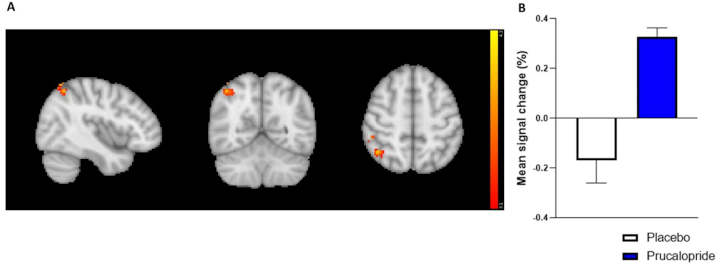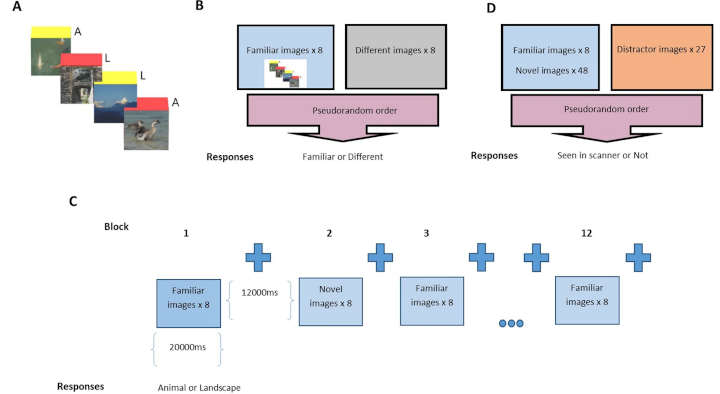Prucalopride, which targets the 5-HT4 receptor, may improve cognition and memory, a group of UK researchers has found.
Even when the low mood associated with depression is well-treated with conventional antidepressants, many patients continue to experience problems with their memory. Our study provides exciting early evidence in humans of a new approach that might be a helpful way to treat these residual cognitive symptoms,
Dr. Susannah Murphy, senior research fellow, University of Oxford and a senior author of the study1, said.
Drawbacks In Current Medications
Severe psychiatric disorders can have a devastating impact on a patient’s life. Cognitive impairments, including decreased attention and working memory, and disrupted social cognition and language, are widespread in psychiatric disorders such as major depression, schizophrenia and bipolar disorder.
These common problems are poorly treated with current medications2 and often have a large impact on people’s lives, so scientists are searching for ways of improving or restoring these functions.
Previous animal studies3 have shown that the drugs targeting the 5-HT4 serotonin receptor are promising for improving cognitive. However, it has been difficult to translate these animal findings to human studies because of worries about side effects.
Prucalopride And Image Memory
Prucalopride (brand name Prudac), a selective 5-HT4 partial agonist with good brain penetration, recently received medical approval for constipation4. It has an acceptable level of side effects if taken under medical supervision, so it offered the researchers an effective medicine model to assess potential enhancement of cognition in healthy humans.
Forty-four healthy volunteers aged 18 to 36 participated in the trial. Twenty-three were given prucalopride, and 21 were given a placebo.
After six days, all the volunteers were given an fMRI brain scan. Before entering the MRI scanner, volunteers were shown a series of images of animals and landscapes. They viewed these again plus similar images during the scan.
After the scan, volunteers performed a memory test: They were asked to distinguish the images they had seen before and during the scan from a set of completely new images.
Enhanced Cognition Activity
The researchers found that, compared with those taking the placebo, the volunteers taking prucalopride were both significantly better at the memory test after the scan, and also had fMRI scans indicating enhanced activity in brain areas related to cognition.

Whole-brain activation in response to familiar mean in prucalopride vs. placebo group. Credit: de Cates et al, CC-BY
The increased activity was in areas associated with memory, such as the hippocampus (in the center of the brain) and the right angular gyrus (towards the rear of the brain).
Participants who had taken prucalopride for six days performed much better than those receiving placebo on the memory test; the prucalopride group identified 81 percent of previously viewed images versus 76 percent in the placebo group. Statistical tests indicate that this was a fairly large effect — such an obvious cognitive improvement with the drug was a surprise to us,
Lead researcher Dr. Angharad de Cates of the University of Oxford said, presenting the work at the European College of Neuropsychopharmacology conference in Lisbon.
Although prucalopride doesn’t have significant side effects if taken under medical supervision, doctors caution there is possibility of headache, gastro-intestinal symptoms such as abdominal pain, nausea and diarrhea, and fatigue or dizziness. There were no significant side-effects shown by any of the volunteers taking prucalopride in this study.
This study highlights a very interesting and much-needed potential for repurposing drugs to help cognitive dysfunction, which is often associated with psychiatric disorders even in remitted states. Importantly, as the authors also state, it will be vital to translate these findings from healthy populations into clinical populations. It will also be important to understand if prucalopride adds to the effects of existing antidepressant treatments, or can be used as a stand-alone therapy,
Dr. Vibe Frokjaer, adjunct professor, Department of Psychology, Copenhagen University, said.
The work was supported by the NIHR Oxford Health Biomedical Research Centre and by the Wellcome Centre for Integrative Neuroscience.
-
de Cates, A.N., Wright, L.C., Martens, M.A.G. et al. Déjà-vu? Neural and behavioural effects of the 5-HT4 receptor agonist, prucalopride, in a hippocampal-dependent memory task. Transl Psychiatry 11, 497 (2021). ↩︎
-
Millan MJ, Agid Y, Brüne M, Bullmore ET, Carter CS, Clayton NS et al. Cognitive dysfunction in psychiatric disorders: characteristics, causes and the quest for improved therapy. Nat Rev Drug Discov. 2012;11:141–68. ↩︎
-
Compan V, Daszuta A, Salin P, Sebben M, Bockaert J, Dumuis A. Lesion study of the distribution of serotonin 5-HT4 receptors in rat basal ganglia and hippocampus. Eur J Neurosci. 1996;8:2591–8. ↩︎
-
Drug Approval Package: Motegrity (prucalopride). U.S. Food and Drug Administration (FDA). 28 December 2018 ↩︎
